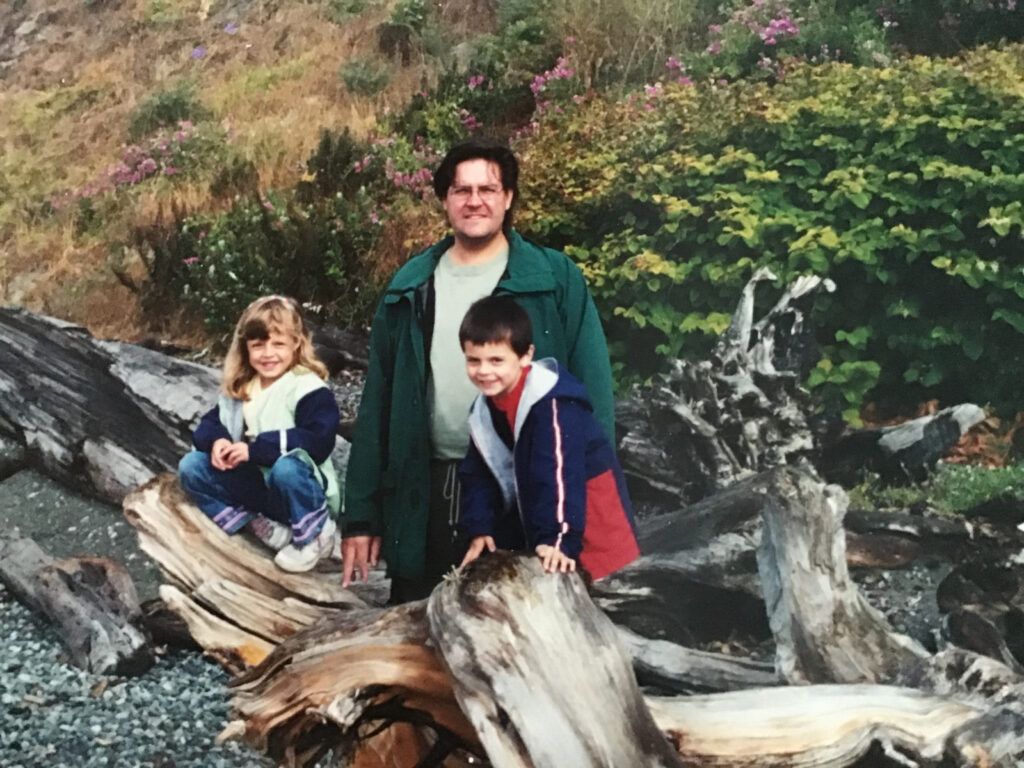Imagine being afraid to feed your own child.
That’s how Jared’s parents, Cynthia and Mark, felt when they first learned of his long list of severe allergies.
If something he ate so much as touched an allergen, the reaction could be life-threatening, and he needed emergency care at HSC Winnipeg Children’s Hospital more than once.
“I was terrified and crying. Every little thing you give him you’re worried about,” says Cynthia.
Jared’s allergies showed up when he was one year old. He was starting to eat solid foods and had some oatmeal, but then immediately spat it out.
“He started to scream, and his eyes welled up and his face turned red,” says Cynthia.
Jared’s pediatrician was nearby, so Cynthia quickly drove him to the office for treatment. The doctor explained that Jared would always need to carry an EpiPen and referred him for allergy testing.
The results were staggering and included oats, wheat, legumes, beans, peas, nuts, soy, eggs and more.
“It was more a matter of what could he have, as opposed to what he couldn’t. The list was huge,” says Cynthia. “At first it was very overwhelming. But we did get used to it.”
Cynthia started cooking meals entirely from scratch for Jared, Mark and Jared’s sister, Adrianna; the whole family needed to cut out Jared’s allergens, as any cross-contamination in the kitchen could put him at risk.

Jared’s allergies developed and changed as he grew, and one severe allergy that popped up sent him to hospital – kiwi.
At three years old, Jared already knew not to try unknown food. One day, during snack time at daycare, he picked up a strawberry (something he knew he could have) from a fruit plate. That strawberry had touched a kiwi and as soon as Jared put it to his lips – before he could even take a bite – he began to scream in pain.
The daycare’s staff immediately phoned Jared’s parents to confirm they should administer his EpiPen and called an ambulance. He was rushed to HSC Children’s Emergency and needed two more shots of epinephrine on the way. Doctors also gave him prednisone when he arrived. Staff monitored his vital signs and made sure he was recovering well before sending him home.
Cynthia and Mark remember everyone at HSC Children’s being kind, considerate and patient, while focusing on Jared’s needs.
“I just was so impressed with the care. Obviously, they all love kids and they were just so good with him,” says Cynthia. “Every single person we came into contact with was very caring and was very interested in keeping Jared calm and making sure that he felt safe.”
Jared grew up unable to eat around other kids and spent his school years going home for lunch. His reaction to kiwi was the most severe, but he still needed to use his EpiPen a few times in the years to come. Once when the needle was administered it hit Jared’s bone, and he ended up at HSC Children’s Emergency again.
“I remember feeling relieved when we got to the hospital. Knowing that the medical staff were there and could help me was a comfort,” says Jared. “The care I received both times made me feel safer throughout my childhood.”
Jared is now in his twenties and continues to deal with developing and changing allergies. He and his family rarely go out for meals, and if they do, they’re very careful to check the menu ahead of time.
As a parent, Cynthia has found support through the Children’s Hospital Research Institute of Manitoba (CHRIM). She would follow the latest findings from CHRIM and keep tabs on any new information that could help. She and Mark are so grateful for the support they have received that they’ve now become dedicated donors to the Foundation.
“I think it’s great that there’s so much research that is done, and we should be donating dollars for research,” says Cynthia. “It’s thanks to those donations we’re able to have the best doctors, the best nurses, the best research and the best care for kids.”
When Jared looks back, he feels thankful that as he was growing up, he could rely on the team at HSC Children’s.
“While I understood that my allergies were very serious, I always knew that were I to have another reaction, the nurses and doctors at the hospital would be able to help me. I am very grateful for the work that the Children’s Hospital does.”
Stay in touch!
Sign up for e-news to get updates on the latest events, news, and stories.
sign up for the newsletter